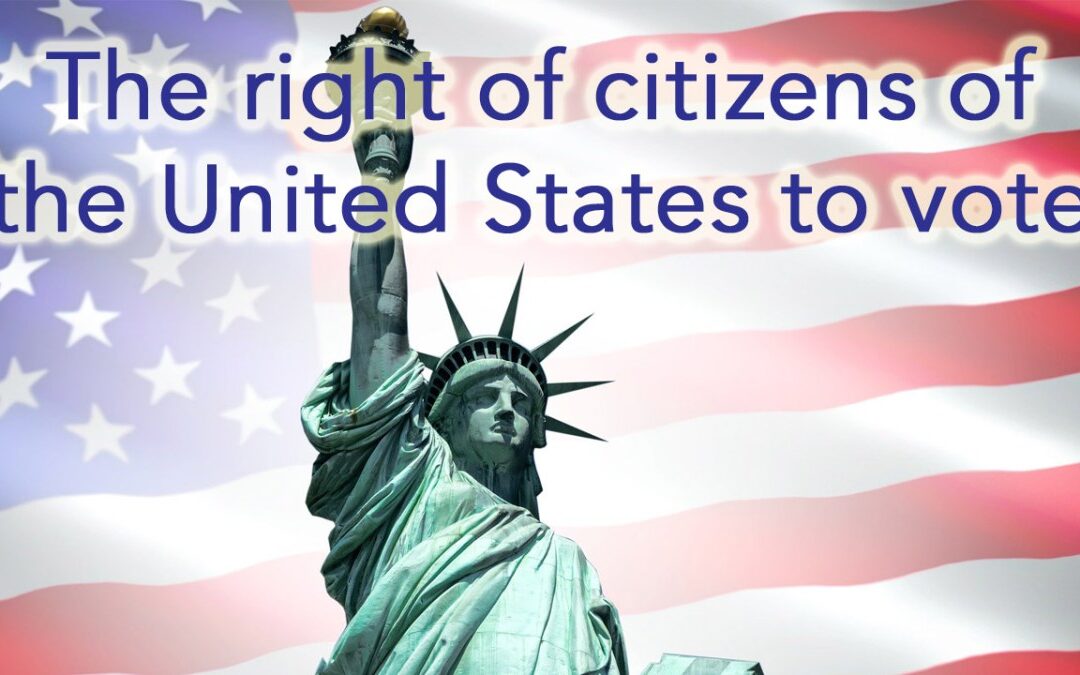Given the partisan dispute over the Freedom to Vote Act, which was recently voted down in the US Senate, we could easily overlook that this was supposed to be a compromise plan, designed specifically to generate support from both parties.
After the demise of the For the People Act, Democrats came up with a compromise package. The first part focused on voter access and election administration, and included provisions that would create automatic voter registration at a national level, make Election Day a national holiday, and establish basic minimums that states could not fall below on early voting, same-day registration, mail voting and drop boxes. This section also set a national standard for voter-ID laws, intended to address Republican demands.
The second part focused on election integrity, and it included provisions to insulate election officials from partisan interference, established cybersecurity standards, and with the 2016 race in mind, created “a reporting requirement for federal campaigns to disclose certain foreign contacts.”
After the bill’s unveiling, proponents got to work, reaching out to Republicans, hoping to get some bipartisan cooperation. Even West Virginia Senator Joe Manchin got into the act, helping to write the compromise bill. But he got zero Republicans to vote for it. Senate Minority Leader McConnell rejected the compromise, and in the first floor vote, the bill faced unanimous GOP opposition.
What’s striking is not just the GOP’s rejection of a compromise offer, but also their unwillingness to actually go on the record on the floor of the Senate; invoking the “filibuster” without having to actually talk about why the bill was bad for America. On media, they were more outspoken, but gave numerous and bogus counter arguments. And there were more than just a few, as noted by MSNBC.
It’s a free country, and people –– especially politicians –– are free to say what they like. But one of the most bizarre arguments is the contention that voting rights, under the Constitution, is the sole province of state legislatures. In a Jan. 13 interview with NPR, Sen. Mike Rounds of South Dakota said,
“I think we make a serious mistake if we try to take away from what the Founding Fathers wanted in the first place, which is the election process should be handled at the state level.”
Rounds was not the only Republican Senator making the case for states as the only place to set rules for federal elections.
“The Constitution gives states control of elections, out of the hands of power hungry DC politicians,” tweeted Arizona Rep. Paul Gosar.
Sen. Mitt Romney (R-UT) tweeted on Sunday, January 16, “Democrats are attempting a federal takeover of our elections, which were deliberately left up to the states to keep autocracy from taking hold in America.”
Similarly, Nebraska Rep. Don Bacon tweeted, “The Constitution grants states, NOT [House Speaker Nancy] Pelosi, the authority to run their elections.”
Long time climate change denier Sen. Jim Inhofe of Oklahoma also tweeted “After two unsuccessful attempts last session to bring so-called voting rights legislation to the floor, Democrats are moving forward on yet another bill that would put the federal government in charge of something the Constitution has explicitly left to the states.”
The Republicans’ argument centers on a provision in Article I of the Constitution, which sets the rules for how federal elections are to be run.
On Tuesday, Rep. Buddy Carter (R-GA) cited a portion of the provision, by tweeting “States, not the federal government, control elections: ‘The Times, Places and Manner of holding Elections for Senators and Representatives, shall be prescribed in each State by the Legislature thereof’ – Article I, Section 4, Clause 1.”
But Carter clearly omitted the last phrase, which says that the “Congress may at any time by Law make or alter such Regulations, except as to the Place of chusing Senators.'”
Carter and his colleagues’ arguments also ignore the 15th Amendment to the Constitution, ratified in 1870, which provides that the “right of citizens of the United States to vote shall not be denied or abridged by the United States or by any state on account of race, color, or previous condition of servitude.” Section 2 of the amendment reads, “The Congress shall have power to enforce this article by appropriate legislation.”
Say what you like, Senators, as you have the legal right to do. But misquoting the Constitution is wrong. When you become a Senator, you swear to uphold the Constitution. We haven’t heard this much horespucky about states’ rights since before the Civil War. Folks, if you’re going to talk about the U.S. Constitution and “states’ rights,” you could at least get it right. It’s again quite clear that a politican’s “right” of free speech in America includes the right to be deliberately misleading about matters of fundamental importance.
